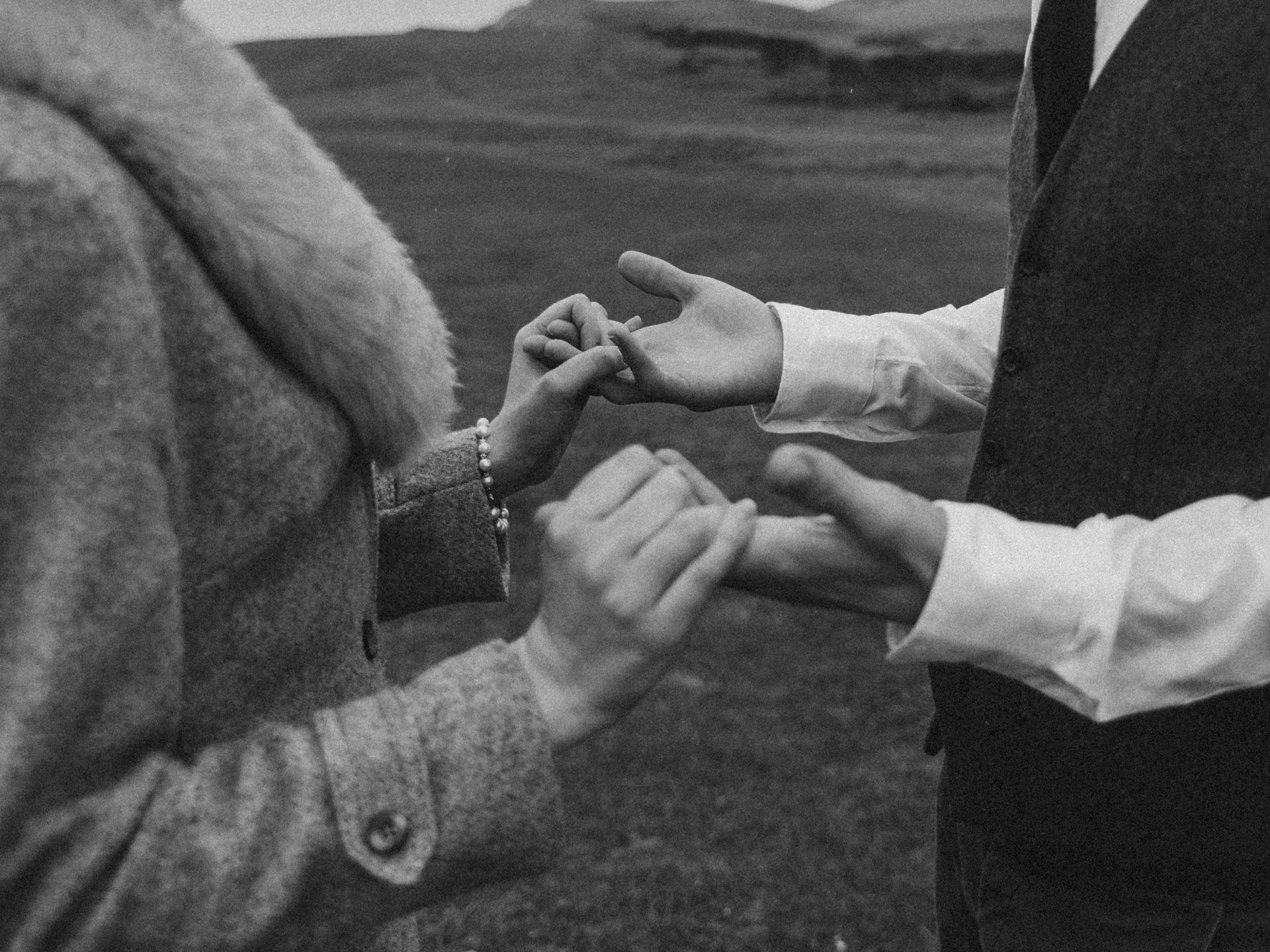Daily Office and Sabbath
Robyn Black • March 14, 2021
Emotionally Healthy Spirituality wk 6, Daily Office and Sabbath

Present day Salvation Army Officership involves completing a form called a Ministry and Development Plan. This is a way of helping us to be reflective about our life and ministry – but it’s about how we are personally. It helps us to ask questions – how am I going in my relationships with God and others, what are my personal goals, how might I attain those goals. Well last year I sat down with Miriam, my boss, and we went through it. Of course, I took very little time to reflect and the theme of my life is “I need to lose weight and spend more time with God”. So I kind of went with that! I ended up with goals like, I’ll walk regularly, I’ll have a monthly retreat day – just me and God, I’ll look into finding a spiritual director, I’ll read more books. So last week it was time for the annual review. Of course, I’m bigger and less fit than when I wrote the goals last year, and we got to the monthly retreat days. Not one in the whole year! Just after I made my goals last year I scheduled one and then there was some sort of emergency, I cancelled that day and never scheduled another one. So as I’m talking to Miriam online, I look in my diary and to my surprise, this coming Monday though the day is completely free. Miriam asks ‘and how are the retreat days going’, and I say, ‘well Miriam, I’ve scheduled one for this coming Monday!’. Oh dear. Each day is jam-packed. Or just slips past with…I’m not sure what. But today is about Sabbath Rest and what Pete Scazzero calls ‘the daily office’. So I’m hoping I’m listening up!
Life in the western world seems to be marked by pressure. I don’t think it always used to be this way – or not to the same extent for our grandparents. We are busy, and especially when we are between 20-60 years, we live our lives “on the run”. We often multi-task, and sadly sometimes our relationship with God can become just one more thing we multi- task, desperately trying to keep our distracted mind off the items we need to buy at the shop later in the day. As a result, few people have the time to develop their own direct experience of God. In fact, most people don’t really pray that much on their own. A US study showed that even the average pastor prays only about 7 minutes a day. It seems that we’re not all that intentional in spending time in God’s presence.
This week we’re looking at two ancient disciplines going back thousands of years—the Daily Office and Sabbath. The first ancient practice is called the Daily Office. Many of us were taught to have quiet times or devotions. Many of us spend time with God in the morning, for example, reading the Bible and praying. The problem is though, even just a few hours later we’re so wrapped up in the demands of the day that all thoughts of God are out the window, let alone having a conversation with Him or listening to Him.
The focus of the Daily Office is not to get something from God, not to learn more, and not even to pray for others more. The focus of the Daily Office is just to be with God. It is about communion, abiding, remaining in Jesus. The Daily Office is about meeting with God not once a day but pausing to be with him 2, 3, or 4 times a day. The word Office, comes from the Latin word Opus and means ‘work’. And for the early church the Daily office was literally “the work of God”. It was their highest priority. We know that King David practiced set times of prayer seven times a day (see Psalm 119:164). Daniel prayed three times a day (see Daniel 6:10). Devout Jews in Jesus’ time prayed two to three times a day, and Jesus himself probably followed the Jewish custom of praying at set times during the day. Pausing through-out the day to be mindful of God’s presence, is the key to being more continually aware of God’s presence. This pausing to be with God can last anywhere from 2 minutes to 20 minutes to 45 minutes. It is up to you. There are endless possibilities, and tools, for what you can do with your time God during these prayer times. God has built us each differently. What works for one person will not for another.
But there are four elements, that Pete Scazzero says are essentials for the Daily Office.
1. Stopping: This is the essence of a Daily Office. We stop our activity and pause to be with the Living God. To be unhurried, to so that what we read or pray can sink down in our spirits.
2. Centring: Scripture commands us: “Be still before the LORD and wait patiently for him” (Psalm 37:7a) and “Be still, and know that I am God” (Psalm 46:10a). We move into God’s presence and rest there. Pete Scazzero suggests sit still, sit straight, breathe slowly and deeply, close your eyes or lower them to the ground. As you breathe in, ask God to fill you with his Holy Spirit, as you breathe out, exhale all that is not of God.
3. Silence: Dallas Willard has called silence and solitude the two most radical disciplines of the Christian life. The practice of silencing everything, including yourself, to be with God. Henri Nouwen said that “without solitude it is almost impossible to live a spiritual life.” And fourthly,
4. Scripture: The Psalms are found in almost any Daily Office book available. But you could read through the Bible, or meditate on different scriptures
EHS have a small Daily Office book called “Emotionally Healthy Spirituality Day by Day.”
The Second Ancient Treasure is Sabbath-Keeping. The Daily Office concerns itself with a daily rhythm. Sabbath-Keeping is about a weekly rhythm for our lives. The word Sabbath comes from the Hebrew word that means “to cease, to stop working.” It refers to doing nothing related to work for a 24 hour period each week. The reason this is so radical is our culture knows nothing of setting aside a whole day (twenty-four hours) to rest and delight in God. Jesus said, “The Sabbath was made for people, not people for the Sabbath” (Mk. 2:27). It is a gift from God we are called to receive.
In the 10 commandments, the longest and most specific commandments is the fourth: Remember the Sabbath day by keeping it holy. Six days you shall labour and do all your work, but the seventh day is a Sabbath to the Lord our God. On it you shall not do any work, neither you, nor your son or daughter, nor your manservant or maidservant, nor your animals, nor the alien within your gates. For in six days the Lord made the heavens and the earth, the sea and all that is in them, but he rested on the seventh day. Therefore the Lord blessed the Sabbath day and made it holy.
There are two extremes to the way people approach Sabbath. On one extreme is legalism. This says, “If you don’t keep Sabbath, God is angry and it is like you have committed the worst sin.” The other extreme is one that treats Sabbath as irrelevant and there is no need to bother with it at all. The balanced position is that Sabbath keeping is a core spiritual formation discipline – like prayer and reading Scripture.
Practicing Sabbath is about setting a regular rhythm every 7 days for a 24-hour block of time. Traditional Jewish Sabbath begins at sundown on Friday and ends on sundown Saturday. The traditional Christian Sabbath is Sunday. But there’s lots of people who can’t have a Sabbath on the weekend – nurses, police, fire fighters. So they could choose another day of the week. The apostle Paul seemed to think one day would do as well as another (see Romans 14:1-17).
What is important is to select a time period and protect it! The following are four principles of biblical Sabbaths that distinguish a “day off” from a biblical Sabbath. The first is:
1. Stop. Sabbath is first and foremost a day of “stopping.” Yet most of us can’t stop until we are finished whatever it is we think we need to do. We need to complete our projects, answer our emails, return all phone messages, and finish cleaning the house. There’s always one more thing to do before stopping. The Sabbath calls us to build the doing of nothing into our schedules each week. We stop on Sabbaths because, God is at work taking care of the universe, assuring us the world will not fall apart if we cease our activities. He manages quite well without us having to run things. The second quality is:
2. Rest. Once we stop the Sabbath calls us to rest. God rested after his work. We are to do the same—every seventh day- resting from our paid and unpaid work. We rest from things like hurry, physical exhaustion, catching up on errands, technology and machines. Again, what is rest to one person may not be rest to another. The third component is
3. Delight. A biblical Sabbath revolves around delighting in what we have been given. God, after finishing his work of creation on the first Sabbath, proclaimed that “It was very good” (Genesis 1:31). God delighted over his creation. On Sabbaths we are invited to enjoy and delight in God’s creation and its gifts. We are to slow down and pay attention to the innumerable gifts of life God has provided for us to enjoy. Finally…
4. Contemplation of God. Exodus 31:15 says that we are to keep the Sabbath ‘holy’. We focus on God, we ponder His love through worship or fellowship or nature. We slow down to focus on the giver, not just the gifts.
Pete Scazzero says that Sabbath is like receiving the gift of being snowed in every week! Stores are closed, roads are impassable, and you have the gift of a day to do whatever you want to do. And we get 52 of these a year – that’s the equivalent of over 7 weeks of Sabbath per year. Sabbath-keeping and the Daily Office help us stay tuned in to God’s presence for our days and our weeks. But they may be the first small steps towards a less hurried life that is more anchored and centred in the love of God.
Sermons For The Moment

This is an interesting Psalm – another psalm of ascent. We spoke about these Psalms of Ascent a few weeks ago. They were songs the Jewish people sang as they made their way to Jerusalem to go to the temple, through the forest, along the tracks, camping by the roads. And I believe songs like this kept them focussed and kept their spirits up. I can imagine days of walking together, tiring, boring, hot and dusty. And singing some of these Psalms keep them focussed on the faithfulness of God. Much better then eye spy for the kids. Journeys are not all their cracked up to be even if the destination is worth it. As you know, when I was growing up we always holidayed at Bawley Point past Ulladulla, and in those days it was about a 4 hour drive from Sydney. We always left later than we meant to…and the last 20 mins was on a dirt road. One year when I was probably about 4 years old it was dark by the time we got to the dirt road, and half way along the dirt road, was a dodgy wooden bridge over a river. I think part of the bridge had been damaged and we had to wait a bit in the pitch black darkness before we could proceed. Dad was out with a torch ensuring the bridge was safe to drive on and mum and us 4 kids were sitting in the darkness – no street lights, no moonlight. Of course, you might be able to guess what I said to mum in that car, with fearful crying…you’ve probably heard it from kids before. I said ‘I want to go home’. Mum said to me, ‘we can’t go home Robyn, we’re almost there’. In truth, after the bridge we had the last 10 minutes of a 4 hours journey left. We safely crossed the bridge and we were OK. But I remember it. I remember the feeling of being scarred in the darkness. I remember not liking this journey at all. Even though I always loved the destination. Well this psalm celebrates the end of the journey and the arrival at the destination. Psalm 126:1-3, “When the Lord brought back his exiles to Jerusalem, it was like a dream! We were filled with laughter, and we sang for joy. And the other nations said, “What amazing things the Lord has done for them.” Yes, the Lord has done amazing things for us! What joy!” Before we can understand the laughter and joy of the Israelites, we have to understand their journey. This Psalm looks back to when they arrived back in Jerusalem after 70 long years in Babylon. The captives had experienced great sorrow and mourning in exile. We read these heartbreaking words in Psalm 137: “Beside the rivers of Babylon, we sat and wept as we thought of Jerusalem. We put away our harps, hanging them on the branches of poplar trees. For our captors demanded a song from us. Our tormentors insisted on a joyful hymn: “Sing us one of those songs of Jerusalem!” But how can we sing the songs of the Lord while in a pagan land?” (Psalm 137:1-4). Their tormentors demanded they sing joyfully, but they were like – that’s impossible, it doesn’t come from our heart. So they just sat by the waters of Babylon and wept. But now by an amazing work of God they were suddenly back in Jerusalem. And so their joy came from their heart. The wait was over, the journey was complete. “We were filled with laughter, and we sang for joy.” The journey is the hard bit though isn’t it? I was reminded of this, this week. An Officer couple I was speaking to, said that their teenager said some very hurtful things to them. Stuff like, ‘you make my life worse’. As they spoke to me, I did very little but listen and pray with them. They do have other supports in their life as well, already seeing a psychologist. But what I was thinking in my head as they were speaking was ‘oh the teenage years, I’d forgotten them’. Though we have 2 wonderful young adults in P and K, they were times when it was more than tense. K wears her heart on her sleeve, and to this day apologises for some of the things she said to me. And P, you wouldn’t know what he was thinking, and then all of a sudden all his thoughts and feelings for the last 3 years would come out like molten lava everywhere. A few days later I checked in to see how the couple and their teenager were going. I mentioned in passing about teenage years and very briefly about our experiences. I didn’t want to make it all about me. But I said teenage years can be painful and those years can really hurt everyone in the family. Teenager included. They know that we have a good relationship with P and K and they said to me, you know, this is helpful. It gives us hope. I was like, yep, this too shall pass. Because when you’re in the midst of the journey of pain and sorrow, you sometimes wonder if there’s light at the end of the tunnel. If you’ll laugh again or experience joy again. You begin to wonder, “Is this all that God has for me? Will I ever be happy again?” And here’s the promise in Psalm 126:4-6, “Restore our fortunes, Lord, as streams renew the desert. Those who plant in tears will harvest with shouts of joy. They weep as they go to plant their seed, but they sing as they return with the harvest.” When you are going through a time of deep sorrow, Psalm 126 is strong medicine for your soul. It carries a powerful message of hope. It tells you that times of trouble and sorrow do not last. It tells you that God will turn your sorrow to joy and your tears to laughter. If you are going through a challenging time right now, I pray that this psalm will speak to your heart this morning. Let me tell you right up front, whatever you’re going through, it will get better. God will change your tears to joy. This week I found something I wrote about 10 years ago. I had written it on a piece of paper and there was a whole reflection about my life. At the time we had my mum living with us, she had dementia, and mostly I remember the good times and the fun times with her. I was also the Corps Officer at Glebe and Bob was the manager at William Booth House. After a page of writing I had written something like this “I’m often anxious, I’m usually stressed, I have eczema on my eyelids and ulcers in my mouth. I always feel pressed.” I went out to Bob in the lounge room and I’m like, ‘oh my goodness, eczema on my eyelids and ulcers in my mouth’, often anxious, usually stressed. The thing is, my life feels a long way from that now, and I’d forgotten what that part of my journey felt like. I’m sure when I was there I couldn’t look ahead and see a time of joy…but the truth is that “Those who plant in tears will harvest with shouts of joy. They weep as they go to plant their seed, but they sing as they return with the harvest.” This too shall pass. ‘Yes, the Lord has done amazing things for us!’ says verse 3. God is faithful – he does the healing, the restoring, he brings the streams in the desert that renews and brings fruitfulness. I don’t need to tell you – it takes time. Today, I’m praying for a work of healing in your life, a gradual restoration of joy, of laughter. Like me as a kid, sometimes we don’t like parts of this journey at all. Even though we know our destination is good. And ultimately, we have a destination like no other and that’s the promise of God. A home in heaven made possible through Jesus. May God bless you this week as you look to Him, listen to Him, find your hope in Him and find courage and healing in your journey.







